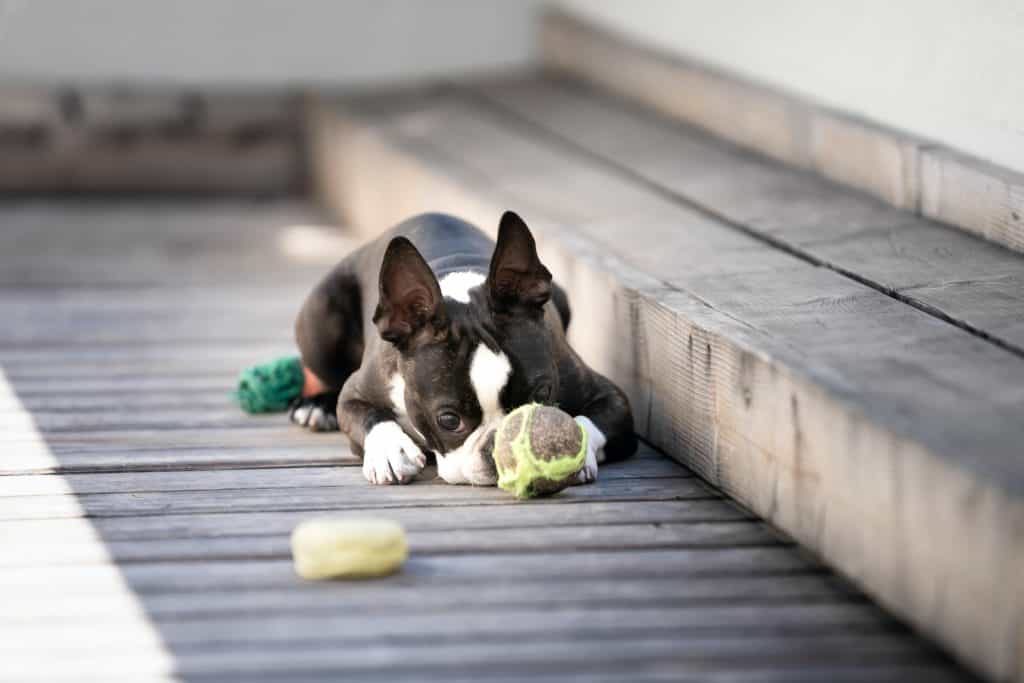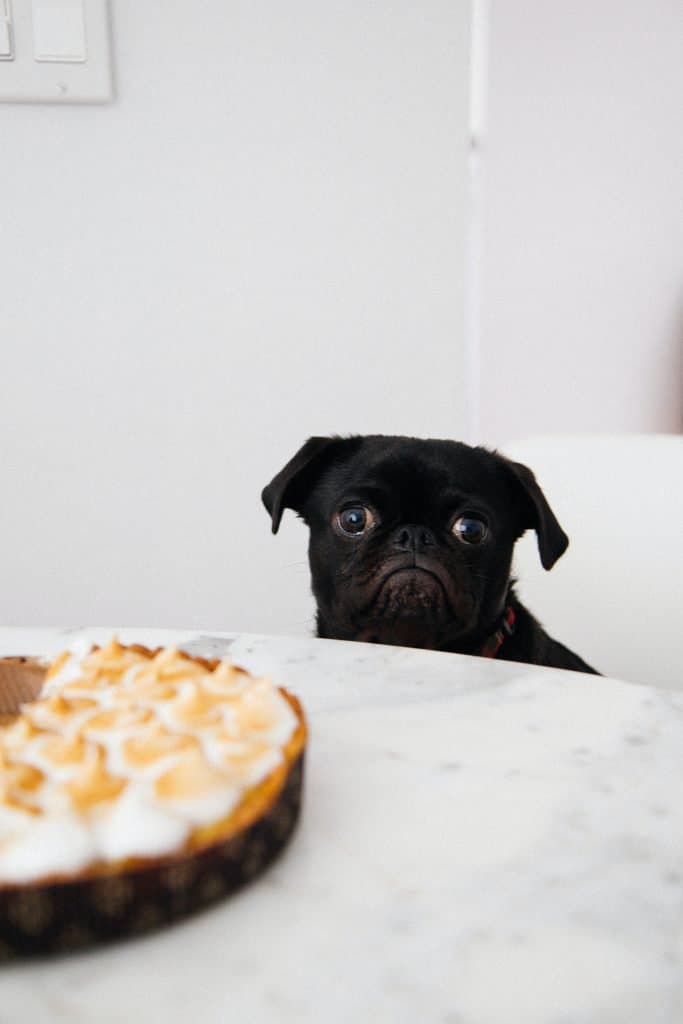As a pet owner, you want to provide the best possible nutrition for your furry friend. You might wonder: at what age can puppies eat human food? Unfortunately, while giving your pup a taste of what you’re eating might be tempting, not all human foods are safe for dogs. In this article, we’ll discuss when it’s appropriate to introduce human food to your puppy’s diet, which human foods are safe for dogs, and which ones to avoid.
Table of Contents
At What Age Can Puppies Eat Human Food?
Puppies should not be given human food until they are at least four weeks old. Before that, their digestive systems are not developed enough to handle anything other than their mother’s milk. At four weeks, you can start introducing soft foods such as canned puppy food or moistened kibble. Most puppies are fully weaned by eight weeks and can eat dry puppy food.
Once your puppy is eating solid food and their digestive system is more mature, you can start introducing small amounts of human food as treats or supplement their diet. Introducing new foods slowly and in small amounts is vital to avoid upsetting their stomach.
Safe Human Foods for Puppies

Plenty of human foods are safe and healthy for puppies to eat in moderation. Here are some examples:
- Cooked lean meats: Chicken, turkey, beef, and pork are great protein sources for your puppy. Ensure the meat is cooked thoroughly and cut into small pieces to avoid choking.
- Vegetables: Carrots, green beans, and peas are good dog choices. These veggies are low in calories and fiber, which can help digestion.
- Fruits: Apples, bananas, and blueberries are all safe and healthy for dogs. However, remove any seeds or pits, as they can be a choking hazard.
- Eggs: Cooked eggs are an excellent source of protein for dogs. Just make sure they are fully cooked, and don’t add any salt or other seasonings.
- Yogurt: Plain, unsweetened yogurt is a good source of probiotics, which can benefit your puppy’s digestive health.
- Peanut butter: Peanut butter is an excellent treat for dogs, but make sure it doesn’t contain xylitol, which can be toxic to dogs.
- Rice and pasta: These foods can be a good source of carbohydrates for your puppy, but make sure they are cooked without any added salt or seasonings.
- Cheese: In small amounts, cheese can be a good source of protein and calcium for dogs. However, it’s high in fat, so you should give it in moderation.
How about ice cream?
While many dogs love ice cream, not all ice cream flavors are safe for them to eat. Most commercial ice cream contains high levels of sugar, which can lead to obesity, diabetes, and other health issues in dogs. In addition, some flavors may contain ingredients that are toxic to dogs, such as chocolate or artificial sweeteners like xylitol.
However, some ice cream flavors are safe for dogs to eat in moderation. Here are a few examples:
- Vanilla: Plain, unsweetened vanilla ice cream is a safe choice for dogs as long as it doesn’t contain any chocolate or other ingredients that are toxic to dogs.
- Fruit-based flavors: Ice cream made with fruit, such as strawberry or peach, can be a safe and healthy dog treat if it doesn’t contain any added sugar or artificial sweeteners.
- Peanut butter: Many dogs love peanut butter, which can be a safe and healthy treat in moderation. Look for ice cream made with natural peanut butter containing no added sugar or artificial sweeteners.
- Coconut: Coconut is a safe and healthy dog treat, and it can be found in many dairy-free ice cream options. Just make sure the coconut ice cream contains no added sugar or artificial sweeteners.
- Dog-specific ice cream: Many pet stores sell ice cream specifically formulated for dogs, which is usually made with natural, dog-friendly ingredients like yogurt and pumpkin.

When giving your dog ice cream, it’s important to remember only to provide them with a small amount as a treat and to monitor them for any signs of digestive upset or allergic reactions. If your dog has a sensitive stomach or any health issues, it’s best to avoid giving them ice cream altogether and opt for a healthier treat, such as a small piece of fruit or a carrot stick.
Human Foods that are NOT Safe for Puppies
While there are plenty of human foods that are safe for puppies to eat, there are some that should be avoided. Here are some examples:
- Chocolate: Chocolate is toxic to dogs and can cause vomiting, diarrhea, and even death in severe cases.
- Grapes and raisins: These foods can cause kidney failure in dogs.
- Onions and garlic: These foods can damage a dog’s red blood cells and lead to anemia.
- Avocado: Avocado contains persin, which can cause vomiting and diarrhea in dogs.
- Nuts: Macadamia nuts and walnuts can be toxic to dogs and cause vomiting, tremors, and hyperthermia.
- Bread dough: Raw bread dough can expand in a dog’s stomach and cause bloating and discomfort.
- Alcohol: Even small amounts of alcohol can be dangerous for dogs and can cause vomiting, diarrhea, and even death in severe cases.
- Spices: Many spices, such as cinnamon and nutmeg, can be toxic to dogs and cause vomiting, diarrhea, and even seizures.

In addition to knowing which human foods are safe for puppies to eat, remember that human food should never make up most of your puppy’s diet. While some human foods can be a healthy addition to your puppy’s diet, they should still primarily eat high-quality, balanced puppy food that meets all their nutritional needs.
It’s also important to note that every dog is different, and what works for one dog may not work for another. For example, some dogs may have allergies or digestive issues that make it challenging to tolerate certain foods. Therefore, continuously monitor your puppy’s reaction to new foods and consult with your veterinarian if you have any concerns.
What should I do if my puppy accidentally eats human food that is toxic for it?
If your puppy accidentally eats human food that is toxic for them, you must act quickly to minimize the damage. Here are the steps you should take:
- Call your veterinarian: Contact your veterinarian immediately to tell them what your puppy has eaten and how much. They will be able to advise you on what to do next based on the severity of the situation.
- Induce vomiting: In some cases, your veterinarian may recommend inducing vomiting to help your puppy expel the toxin before it can be absorbed into its system. However, this should only be done under the guidance of a veterinarian, as inducing vomiting can be dangerous if not done correctly.
- Monitor your puppy: Keep a close eye on your puppy for any signs of distress or illness, such as vomiting, diarrhea, lethargy, or seizures. If you notice any of these symptoms, contact your veterinarian immediately.
- Follow your veterinarian’s instructions: Your veterinarian may recommend additional treatment, such as administering activated charcoal or providing supportive care to help your puppy recover.
- Prevent future incidents: Take steps to prevent future incidents by keeping human food out of your puppy’s reach and being mindful of what you’re feeding them.
In some cases, the toxicity of the food your puppy has ingested may be severe enough to require emergency medical attention. If you cannot reach your veterinarian or suspect your puppy is in immediate danger, take them to the nearest emergency veterinary clinic immediately.

Conclusion
In summary, puppies can start to eat small amounts of human food once they are fully weaned, and their digestive system is more mature. Safe human foods for puppies include cooked lean meats, vegetables, fruits, eggs, yogurt, peanut butter, rice, pasta, and cheese. Avoid foods like chocolate, grapes and raisins, onions and garlic, avocado, nuts, bread dough, alcohol, and spices. Remember to introduce new foods slowly and in small amounts, and constantly monitor your puppy’s reaction to new foods. And remember that human food should never make up the majority of your puppy’s diet – they should still primarily eat high-quality, balanced puppy food.

